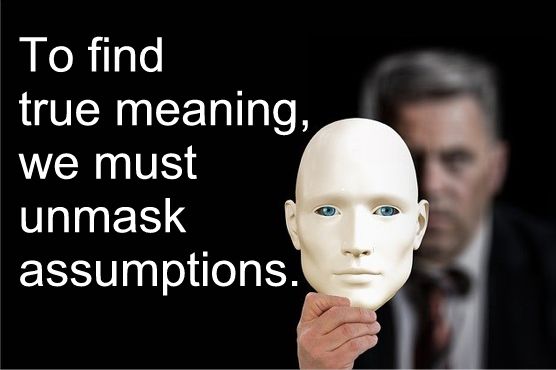About 20 years ago, I was making changes focused on my health. Small changes I was making to my exercise/mindset routine and diet were included. One of those specific changes was beginning a practice of yoga every day. Another focused on a dietary change removing excess sugars from my menu, including yogurts with added fruit.
One day, my young son who was a toddler at the time, came up to me as I was preparing to start my daily set of yoga poses. “I want to do plain yogurt too,” he said pointing to my mat. I smiled at this confusion in his young mind. He made an assumption that the two were one.
Words form the communication that we use to relate to one another. It is how we understand where another person is coming from, what they believe. This exchange of information tells us how someone else feels about a topic. Yet we often miss the mark, others misinterpreting our meaning, as we misinterpret theirs.
This type of blunder does not only happen in young children. It happens on a regular basis in adults, on both the delivery and reception sides of the equation. Too often we fail to truly understand one another, making assumptions that lead to further lack of clarity. We end up fighting with one another without understanding what the other side really means.

For example, I am a strong believer in the use of mask mandates for public safety, but I really want to grasp why so many -people oppose it. I have a hard time getting the sentiment put forth by a group of people who say their reason for resisting the mandates is “an individual’s right to personal choice.” This same group’s consensus for another issue – abortion, is anti-choice. Wouldn’t it follow that if you are in favor of personal choice, it would apply to both issues? What seems apparent on the surface does not jibe with the viewpoint on the other issue. I suspect there is some other meaning behind the words “personal choice” we are missing in the message coming from this group. Making it challenging to fully understand their viewpoint.
We interpret another’s meaning through the lens of our own beliefs and impressions. Truly understanding another’s viewpoint can only happen if we dive deep into that person’s motivations, previously determined views, and past histories. All determiners of where they are at this moment in their lives. If we don’t have this information, we cannot get a clear picture of their position.
In the next post, we’ll look at ways to dig down into true meaning for more accurate understanding. In the meantime, you may want to read Four Reasons Why You Should Allow Your Opponent to Talk First in an Argument and How to Communicate with Integrity – 7 Points to Prevail.
I look forward to seeing you in the next segment.
Copyright 2021, Monica Nelson

